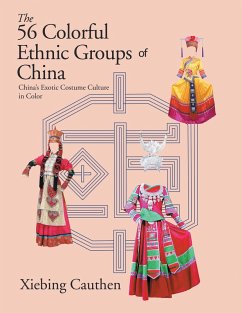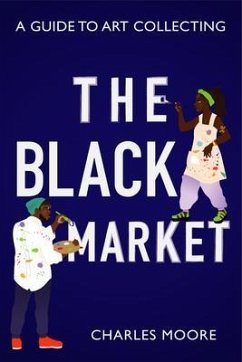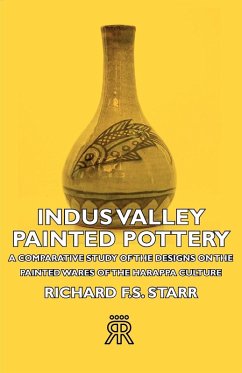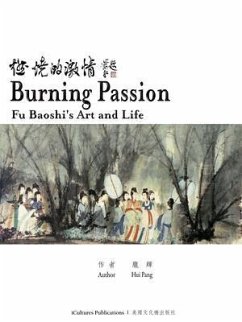
The 56 Colorful Ethnic Groups of China (eBook, ePUB)
China's Exotic Costume Culture in Color

PAYBACK Punkte
1 °P sammeln!
There are 56 separate ethnic groups in China, some with histories going back thousands of years. Scattered throughout China, the groups have different cultures, eating habits, languages, musical traditions, living conditions, traditional costumes and religious beliefs. Many of these groups have languages of their own that are still spoken today. By outlining these different groups and showing them in their natural habitat this book takes a look at an element of the Chinese culture that is rarely seen. Whether it's the ancient Dongba religion of the Naxi, the world famous tea production of the ...
There are 56 separate ethnic groups in China, some with histories going back thousands of years. Scattered throughout China, the groups have different cultures, eating habits, languages, musical traditions, living conditions, traditional costumes and religious beliefs. Many of these groups have languages of their own that are still spoken today. By outlining these different groups and showing them in their natural habitat this book takes a look at an element of the Chinese culture that is rarely seen. Whether it's the ancient Dongba religion of the Naxi, the world famous tea production of the She, the gentle and beautiful folk songs of the Bouyei or the ancestor-worshiping Zhuang, one is struck by the richness of Chinese ethnic life and the great variety of its dress. For example, the clothing of the Mongolian ethnic group located in northwest China reflects a long and rich nomadic tradition. Jewelry, robes, belts and boots are the four main elements of this ethnic group. Mongolian women wear head ornaments made from gold, silver, pearl and agate. The culture of the Miao people living in Southern China is also reflected in their clothing which has been called the most beautiful in the world. Miao clothing is renowned for its world-famous embroidery as well as for its eye-catching colors and intricate silver decorations. This book, through written summaries and color photographs of the costumes of each of the various ethnicities, gives the reader a rare opportunity to see this diverse and complicated element of Chinese culture. The special attire of each ethnic group is described in words and color photographs, organized so as to show the striking complexity and variety of the various forms of ethnic dress in China.
Dieser Download kann aus rechtlichen Gründen nur mit Rechnungsadresse in A, D ausgeliefert werden.













